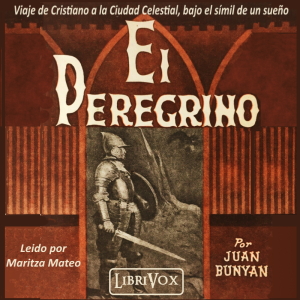
El Peregrino – Viaje de Cristiano a la Ciudad Celestial, bajo el símil de un sueño fue escrita en dos partes, mientras su autor estaba en prisión. La primera se publicó en Londres en 1678, y la segunda en 1684, las cuales sumarizan la alegoría del creyente cristiano en cualquier momento de la historia. Esta obra ha sido traducida en varios idiomas, y se dice que los misioneros protestantes normalmente era lo primero que traducían, después de la Biblia, pues su lectura, con reales aplicaciones bíblicas, hace identificar a todo creyente con su vida espiritual. – Resumen escrito por Marítza Mateo

Other Audiobook
Audiobook: Book of Household Management
“Mrs. Beeton’s” is a guide to all aspects of running a household in Victorian Britain.
Audiobook: Bible (WNT) NT 08: 2 Corinthians
This second letter from the Apostle Paul to the congregation of believers in the bustling
Audiobook: Selections from The Army and Navy Hymnal, Volume 1
This collection was a joint effort by the chaplains of the US Army and the
Audiobook: Phoenix and the Carpet (version 2)
Five children discover a mysterious egg in their new nursery carpet – an egg which
Audiobook: Essays book 2
Michel Eyquem de Montaigne is one of the most influential writers of the French Renaissance,
Audiobook: People of the Abyss
Jack London lived for a time within the grim and grimy world of the East
Audiobook: Mark Aurels Selbstgespräche
Der Stoiker Marc Aurel regierte von 161 bis 180 das römische Reich. In seinen Selbstgesprächen
Audiobook: Who Did It?
Following the dissolution of the New South Wales government, Henry Bryce is ready to take
Audiobook: Art in Australia, No. 2, 1917
In 1916, three prominent identities in the Sydney art world – Sydney Ure Smith, Bertram
Audiobook: Who Was Who: 5000 BC – 1914
A short, humorous biography of famous people from 5000 BC to 1914. — S. McGaughey
Audiobook: Commentary on Galatians
St. Chrysostom’s Commentary on the Epistle to the Galatians is continuous, according to chapter and
Audiobook: Satires and Profanities
“Believing as I do that James Thomson is, since Shelley, the most brilliant genius who